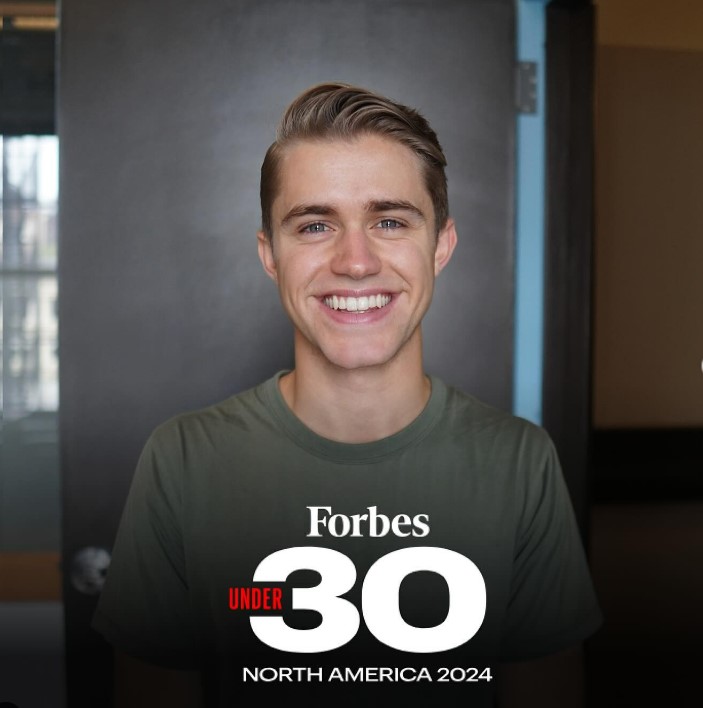Social media creators have to deal with brands if they want to get paid. It’s just how the equation goes. Now, Wells Douraghy has created an app called July that helps creators interact with these brands while marketing the app to creators himself. Douraghy worked as a makeshift manager for a set of influencers during the pandemic, and the idea was born.
Finding a Pattern
Douraghy was tasked with managing a handful of influencers and their business dealings with brands. Yet, during his time working with these influencers, he encountered the same problems. Issues like contracts, rate negotiation, and brand sourcing affected all of his clients.
That left him dealing with several different software suites, each with its own interface and backend. He quickly realized that automation could make him far more efficient and developed the tool that would eventually become July.
A Unique Spot to Occupy
Douraghy is a combination of founder and content creator. He creates content and examines how it propagates across social media channels as research. It gives him valuable insight into what content creators go through. Thanks to his research, he also has a unique grasp of what works and what doesn’t when it comes to marketing a product.
Thanks to his interest in what goes into social media, he’s learned how to get eyes on content. He’s also dealt with interacting with brands and securing contracts and agreements with high-profile ones. This experience, coupled with a creator’s perspective, allows new entrepreneurs insight into things they should know.
Don’t Be Afraid to Innovate
Like many founders before him, people are talking about Douraghy’s product, July, as a game-changer and a disruptor to the typical flow of the influencer economy. Douraghy isn’t sure if he counts as a disruptor, but he knows that innovativeness is how you get yourself and your product out to the masses.
In many cases, a buyer will want to know why should they use your product. Douraghy says that this understanding, your value proposition, allows you to give your client an answer but also opens the doors to a lot of content that can go on your page. He advises new entrepreneurs to answer that question first.
Learn Who Your Audience Is
Many creators, especially those that have followers numbering in the 10K+ range, don’t know who their core audience is. Yet they should since most brands that interact with so-called “micro-creators” require you to know who they are. Spending money on a demographic that doesn’t want their product after all doesn’t make sense.
Douraghy says that these smaller creators should pay close attention to their audience through the metrics their social media channels provide. When brands search for new creators, your selling point is your audience, and landing a paid contract requires knowing who you’re speaking to.

Ask For Help If You Need It
During his time as a manager for these influencers, he realized that most of them knew of each other but were afraid to interact on a deeper level. He assumed it was because each thought that they had industry insights that gave them a “leg up” on their competition. He doesn’t believe this is a healthy way to approach content creation.
Content creation can be done solo, but the trial and error involved in figuring out what went wrong when your post failed takes time you may not have if you want to see success sooner. Speaking to other influencers and asking for their advice and help is the way forward. Seeing them as competitors and rivals considers the social media arena a zero-sum game, which Douraghy insists it isn’t.
Transparency and Authenticity Count for a Lot
As other creators have said in the past, transparency and authenticity are the best ways to approach your audience. You should always be genuine and speak from your heart. If your followers see this genuineness, you will be miles ahead of the people who play it up for the camera and whose social media persona is nothing like theirs.
Transparency comes from disclosing the brands you’re working with and not using your social media platform as a way to make a quick buck. According to Douraghy, social media is a long-term time investment. For it to make sense, you have to be transparent with your audience. Transparency builds trust.
Make Quality Content
Writer Neil Gaiman has said that people should make good art no matter what happens. Douraghy says the same should go for creators when it comes to content. There’s no metric for what counts as viral content, and sometimes, something terrible will go viral. That doesn’t necessarily make it good content.
By Douraghy’s metric, good content is consistent content that gives the reader or viewer something new to think about. He believes that as a content creator, it’s an entrepreneur’s duty to add value to the follower’s life. He advises all creators, whether they’re amateurs or professionals, to consider making good content, not fast content.
Avoiding Burnout By Taking Care of Yourself
Douraghy is a founder and content creator—two high-stress jobs. He finds time to unwind and relax occasionally, but he advises that full-time content creators should find ways to simplify their lives. July is how he simplifies his life, but he says that there are other ways that creators can simplify their lives.
He advises content creators to get to know themselves and figure out what they’re passionate about outside of their social media hustle. Learning this often gives them something to do as relaxation outside of the grind.
Douraghy’s startup has seen a lot of success. It’s not often that a creator shifts gears to become a founder. Usually, it’s the other way around, where a founder becomes a creator out of necessity. Yet Douraghy’s story shows that there’s no better person to understand the struggles of dealing with brands as an influencer than someone who has done it before. It’s not a wonder July has seen such success. The person behind the app is an influencer themselves.





